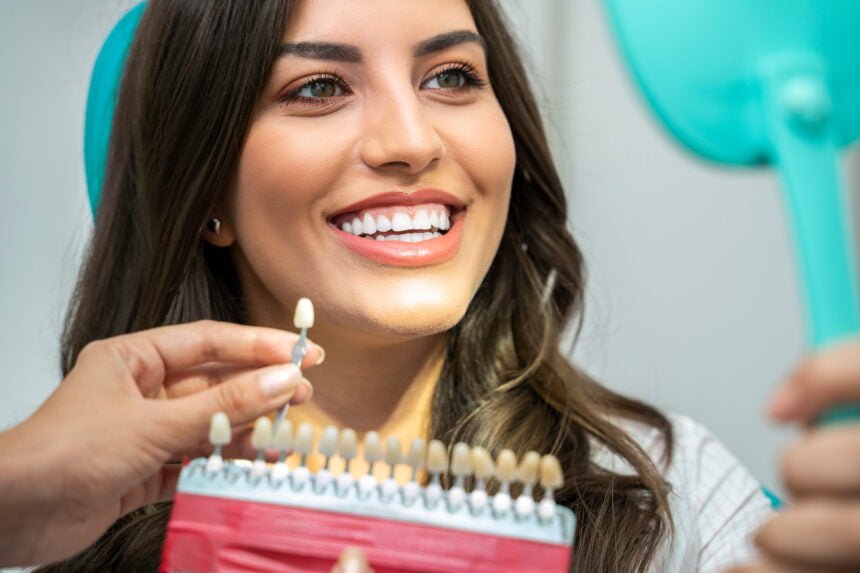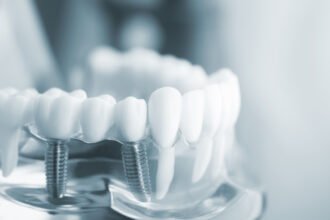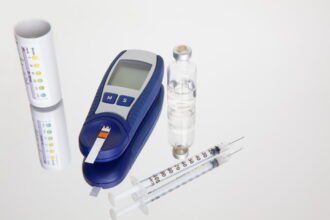Having a perfect set of pearly whites brings forth several benefits. It can make you feel confident about your looks and so on. Nonetheless, not everyone has perfect teeth.
Worry not. If you have damaged teeth due to cavities and poor dental hygiene, an accident, genetic makeup, and the like, there’s still hope of achieving that perfect Hollywood smile. Say hello to dental crowns.
What Are Dental Crowns
Dental crowns are a medical treatment a dentist can perform on a patient with damaged teeth.
Imagine a dental crown as a protective jacket placed on top of your teeth. Before it can be attached, a small amount of dental enamel is filed down by the dentist to ensure a perfect fit.
Dental crowns come in various materials, and patients like you can choose which one fits your case, budget, and others. Luckily, dentists offering teeth crown services can walk you through the whole selection process by discussing your options with you during a dental consultation.
Want to know more about each material? Continue reading below to learn more.
Different Types Of Dental Crown Materials
Though there are many dental crown materials in the market, this post will only look into metal crowns, porcelain-fused-to-metal (PFM) crowns, all-ceramic crowns, and resin crowns for the sake of brevity. Nonetheless, you can ask about other options with your dentist if you wish to learn more.
- Metal Crowns
Metal crowns are on top of this list. As their name suggests, metal crowns are dental crowns made out of any of the following metals: gold, chromium, nickel, and so on.
Dental crowns made out of metal are well-known for their durability, resistance to chipping and cracking, and the like. In fact, it’s said that they can last for decades if they’re well taken care of.
Unfortunately, metal crowns aren’t aesthetically pleasing – especially if you wish to put them on front-facing teeth. Hence, it’s recommended that they only be used on molars. Additionally, some individuals have metal allergies, making them unsuitable options.
- PFM Crowns
PFM crowns are dental crowns that patients can look into if they want the durability of metal crowns without the unsightly metal surface look.
PFM crowns feature an inner metal core, which provides durability. Meanwhile, their porcelain exterior mimics the translucency and color of tooth enamel, which helps to naturally integrate the crown into your teeth’ surface.
There’s a catch, though. Take note that the PFM crown’s metal substructure can sometimes show through as a dark gum line – making it unsightly. To add, the bond between porcelain and metal might not be as sturdy as other dental crown options, like all-ceramic crowns, that are available.
- All-Ceramic Crowns
All-ceramic crowns are hailed by many as a great all-around dental crown material option. Why? It’s all thanks to their exceptional strength (even rivaling that of metal crowns), hypoallergenic properties, and aesthetics.
For starters, all-ceramic crowns are indeed durable. In fact, all-ceramic crowns made of zirconia material are said to be on par with metal crowns when it comes to strength.
Further, all-ceramic crowns are hypoallergenic – meaning they can be used in a wide number of cases, especially those involving patients with specific material allergies. Most all-ceramic crowns are made of biocompatible materials that are believed to be non-irritating and gentle on the surrounding gum tissue.
Lastly, dental crowns that are all-ceramic are aesthetically pleasing and can be easily and inconspicuously integrated into the tooth’s surface.
The caveat? All-ceramic crowns are costlier compared to metal crowns. To add, they can be less robust, especially if they’re used on molars that do heavy chewing and grinding of food.
- Resin Crowns
Resin crowns are temporary dental crowns utilized by dentists on patients while they’re on the lookout for their permanent dental crowns. They’re designed to fit snugly on the target teeth’ surface perfectly for only a limited period.
Because of their temporary purpose, resin crowns aren’t designed to last for a very long time. They’re more to wear and tear. Hence, it’s not recommended to eat hard food items when you still have resin crowns on.
How To Pick The Best Dental Crown Material For You
Together with your dentist, consider the following factors when picking the right dental crown material for your dental needs:
- Location: The location of the dental crown is an important consideration. For instance, metal crowns are recommended if they’re going to be placed on molars. On the other side of the coin, front teeth require natural and sturdy dental crowns like all-ceramic crowns.
- Durability: The dental crown’s material strength is significant if you want your dental crown to last for a long time.
- Aesthetics: Ask yourself the following: how important is a natural-looking smile? When it comes to aesthetics, natural-looking dental crowns such as all-ceramic crowns are a no-brainer top choice.
- Budget: Costs vary depending on the dental crown material and your dentist’s fees. Discuss your options and find the perfect fit for your wallet.
- Medical history: Medical conditions like metal allergies might rule out metal and PFM dental crowns. Make sure that you disclose such medical information to your dental professional so that they can figure out an alternative that doesn’t harm your health.
Getting dental crowns isn’t a walk in the park. If you have further concerns, don’t hesitate to raise them with your dentist – they’ll be more than welcome to accommodate them. Seek a second opinion if necessary.
To Conclude
Dental crowns are helpful to those who are looking to improve the look of their teeth and boost their oral health. With so many options to choose from, patients like you may have a hard time picking the right dental crown material.
Worry not. The insights above will help you with the selection process. At the end of the day, don’t hesitate to ask your dentist about your dental crown material options.










